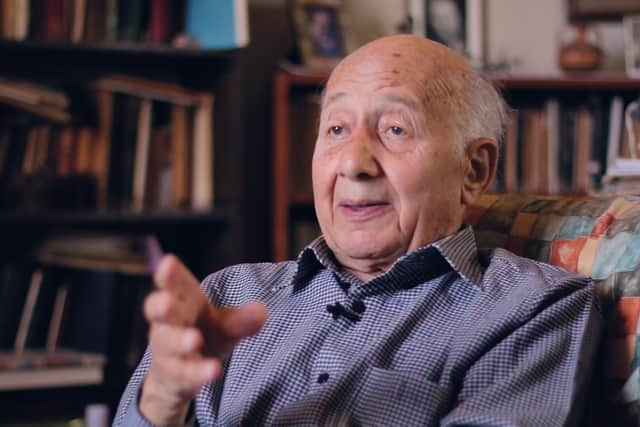Mostafa El-Abbadi: Library of Alexandria scholar and Bibliotheca Alexandrina founder marked by Google Doodle
This article contains affiliate links. We may earn a small commission on items purchased through this article, but that does not affect our editorial judgement.
and live on Freeview channel 276
Today’s Google Doodle honours Mostafa El-Abbadi, a distinguished Egyptian historian and professor of Greco-Roman studies, who would have turned 94 today.
His contributions aided in the establishment of Alexandria’s second great library.
Here is everything you need to know about him.
Who was Mostafa El-Abbadi?
Advertisement
Hide AdAdvertisement
Hide AdOn this day (10 October) in 1928, El-Abbadi was born in Cairo, Egypt. His father founded the College of Letters and Arts at the University of Alexandria, which piqued the young El-Abbadi’s academic interests.
He graduated with honours from the University of Alexandria at the age of 22, and the Egyptian government provided him with a scholarship to the University of Cambridge.
While pursuing his doctorate in ancient history, El-Abbadi studied under eminent historians.
El-Abbadi returned to the University of Alexandria after finishing his degree, first as a lecturer and then as a professor of Greco-Roman studies.
Advertisement
Hide AdAdvertisement
Hide AdHe was particularly fascinated in the Great Library of Alexandria, Egypt’s first universal library established between 285 and 246 BC.


The library had an estimated half a million books from many countries and languages, and was regarded as the capitol of knowledge and learning - imagine a physical Wikipedia of the ancient world.
El-Abbadi rose to prominence as a leading specialist on the subject, lecturing about the Library of Alexandria all over the world. His observations and studies were detailed in the critically-acclaimed book, Life and Fate of the Ancient Library of Alexandria.
The second Great Library of Alexandria
El-Abbadi frequently promoted a modern reproduction of the great universal library in his talks, and persuaded Egypt’s government and the United Nations Educational, Scientific, and Cultural Organisation (UNESCO) to back his initiative.
Advertisement
Hide AdAdvertisement
Hide AdHis ambitious proposal received a boost from President Nixon when in 1974, he travelled by train to Alexandria’s ancient ruins. When Nixon inquired about the location and history of the old library, no one in the Egyptian entourage had a response.
That night, the rector of the University of Alexandria phoned El-Abbadi and asked him to prepare a memo about the Great Library’s rise and fall.
Over a decade later in 1988, the Egyptian President Hosni Mubarak laid the foundation stone for the Bibliotheca Alexandrina, a $220 million cylindrical complex designed by the Norwegian firm Snohetta and located on shore of Alexandria’s Eastern Harbour.
The Bibliotheca Alexandrina opened its doors in 2002, after over 15 years of planning and building. There are an estimated 8 million books housed in the library over seven storeys and four museums, and the building even includes a planetarium.
It also serves as an open-to-the-public research institute.
Advertisement
Hide AdAdvertisement
Hide AdBut El-Abbadi, like other researchers, was critical of various parts of the final library, claiming that the builders had been reckless during the project, oblivious to the archaeological worth of the site.
He also later became sceptical of several components of the project as implemented by the Egyptian government, telling the New York Times that the library was on the verge of becoming “a cultural centre" rather than achieving its "promise as a world-class research centre."
He was nowhere to be seen when the library was officially opened in a ceremony attended by heads of state, nobility, and other dignitaries; he had not received an invitation.
How did he die?
El-Abbadi died on 13 February 2017 at the age of 88 in Alexandria. According to his daughter, Dr. Mohga el-Abbadi, the cause of his death was heart failure.
He is also the father of computer scientist Amr El Abbadi and was married to literary critic and scholar Azza Kararah.
Comment Guidelines
National World encourages reader discussion on our stories. User feedback, insights and back-and-forth exchanges add a rich layer of context to reporting. Please review our Community Guidelines before commenting.
